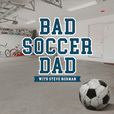
Summary: Dr. Seiple is the Senior Fellow for Comparative Religion at the Jackson School of International Studies. He is widely known and sought after for his decades of experience and expertise regarding issues at the intersection of geopolitics, US foreign policy, Asia, conflict resolution, human rights and religion. He has pioneered innovative solutions in the U.S. Marine Corps, at the U.S. State Department, the Templeton Religion Trust, and as the president of the Institute for Global Engagement (IGE), where he developed a “Track 1.5” theory of change rooted in relational diplomacy. He and IGE are perhaps best known for playing a significant role in the removal of Vietnam (2007) and Uzbekistan (2018) from the U.S. State Department’s religious freedom violations list. Dr. Seiple earned his Ph.D. in International Relations at The Fletcher School of Law & Diplomacy. He also has an M.A. in National Security from the Naval Postgraduate School, and a B.A. in International Relations from Stanford University. He is the recipient of the 2019 Religious Freedom Award from the J. Reuben Clark Law Society, and the 2019 International Award from the International Religious Liberty Association. Chris is a three-time cancer survivor who embraces each day, gratefully. Reflection: Chris says, “Doors opened because I had the courage to step up and say ‘this is not for me.’” Do you have a child who senses their time on a team or a sport might be winding down? Is he or she struggling to let go? Are you? Does it help to consider something positive, even incredible, is on the other side of that choice? Chris coaches his youth soccer team with these principles: See the whole. Play as a body. Create opportunity. Pass and move to space. Stick to “D” and shoot to score. Based on where your family is your current stage of life, what does it mean to “see the whole and play as a body?” Chris says, “When you listen you find out about solutions that are applicable in that context that are already there, instead of you trying to bring them. Sometimes we bring solutions to places that already have them. All they’re asking for is for us to walk alongside and join them in the best of who they already are.” If this is true for global conflicts, it’s also true for challenging family dynamics. Think of a problem your child is facing. Is it possible she doesn’t need you to fix it for her? But to walk alongside her as she figures it out on her own? How do you engage across deep differences (at work, at home, on the field, ice, or court) to make a positive impact in the world?
